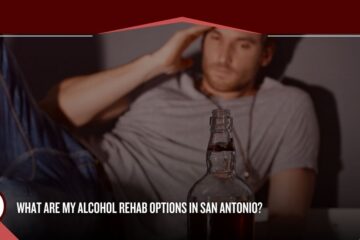 Drug and alcohol addiction can take a toll on your mental and physical health, strain your most important relationships, and leave you at risk for severe, sometimes life-threatening consequences. The harm caused by addiction can follow you for years and keep you from living the life you choose.
Drug and alcohol addiction can take a toll on your mental and physical health, strain your most important relationships, and leave you at risk for severe, sometimes life-threatening consequences. The harm caused by addiction can follow you for years and keep you from living the life you choose.
While addiction can wreak havoc on your life, many barriers prevent people from seeking treatment when they need it. In fact, only about 1 in 10 with a substance use disorder will get the help they need to address the physical, behavioral, and psychological aspects of their substance use.
Addiction is a complex condition that requires comprehensive, compassionate treatment. While addiction can never be cured, people can learn how to manage their symptoms and avoid relapse–but only if they get the treatment they need.
Many barriers prevent people from going to addiction rehab. One of the most significant concerns people have is paying for rehab. Fortunately, there are many ways to pay for addiction treatment, including using your health insurance.
Learn more about using your insurance to pay for rehab by contacting the specialists at Alamo Behavioral Health now. Our knowledgeable staff can help you navigate your insurance and find the best course of treatment to meet your unique needs. Call today to schedule an intake assessment or to learn more.
Will My Insurance Pay for Rehab in Texas?
Many people wonder if rehab is covered by their health insurance. In most cases, the answer is yes–but there are some things to consider before beginning treatment.
The Affordable Care Act (ACA) was passed in 2010 and requires insurance companies to cover the cost of mental health and substance use disorder treatment. Under the ACA, drug and alcohol rehab is considered essential care, meaning that insurance companies can no longer deny claims for this type of treatment.
However, insurance plans can vary significantly in what programs, providers, and treatments they cover. You must verify the details of your specific insurance plan before beginning treatment to avoid unexpected out-of-pocket expenses later.
What Levels of Care Are Covered By Insurance?
Learning about the specific plans, providers, and treatment programs covered by your insurance plan is essential. Typically, insurance covers every level of addiction treatment and many services related to recovery, including:
- Medically supported detox
- Inpatient and residential treatment programs
- Partial hospitalization programs (PHPs)–also known as day treatment and partial care programs
- Intensive outpatient programs (IOPs)
- Outpatient rehab programs
- Medical treatment
- Mental health treatment
- Medications
- Screenings and evaluations
Learn about what services and programs are covered by your insurance plan, and look for covered rehab programs that meet your needs.
What Level of Care Do I Need?
Before beginning treatment for addiction, a doctor or addiction specialist will evaluate your needs and recommend a level of treatment. Addiction treatment is not a one-size-fits-all process. People have different needs based on their unique experiences and goals.
There are several levels of addiction treatment offered in a wide range of settings to meet people’s different needs. Here are some of the levels of care you may consider.
Medical detox
Many people begin a substance use disorder treatment program in a medical detox program. During detox, medical and support specialists will provide the support, supervision, and treatment you need to ensure a safe, complete detox from drugs and alcohol.
Inpatient treatment
In an inpatient treatment program, you will have round-the-clock supervision, support, and access to medical and mental health care. You will receive high-quality treatments while living in the rehab facility.
Outpatient treatment
After completing an inpatient program, many people continue treatment in an outpatient rehab program. Outpatient care is flexible and offered in several types of programs, ranging from very flexible to more structured.
It’s important to consider your needs and what insurance programs will cover when deciding where to seek treatment. Typically, insurance companies will work closely with your doctor and treatment team to determine which level of treatment you need and which services will be covered. As you progress in recovery, your treatment team will continue to work with your insurance provider to ensure the highest level of coverage and lowest out-of-pocket costs.
How to Verify Your Insurance
There are several ways to verify the details of your specific insurance plan before seeking addiction treatment. You may:
- Call the number on the back of your health insurance card and speak to a representative about your options
- Visit the insurance company’s website to explore the details of your plan and find in-network programs and providers
- Ask the insurance specialists at your treatment facility to research your plan’s details
In many cases, rehab facilities have staff dedicated to navigating insurance plans and managing the details of their patients’ coverage. The specialists at Alamo Behavioral Health will use their skills and knowledge to ensure you get the highest level of coverage and understand what services will be covered at every stage of your treatment.
Learn More About Using Insurance to Pay for Rehab
At Alamo Behavioral Health, we know that addiction recovery requires all of your time, focus, and energy. That’s why we have a dedicated team of insurance experts who will navigate your insurance plans and work to get the maximum coverage for all of the care you need.
Don’t wait another day for the help you need. Start your recovery journey today by contacting the Alamo Behavioral Health team to schedule an intake assessment.



